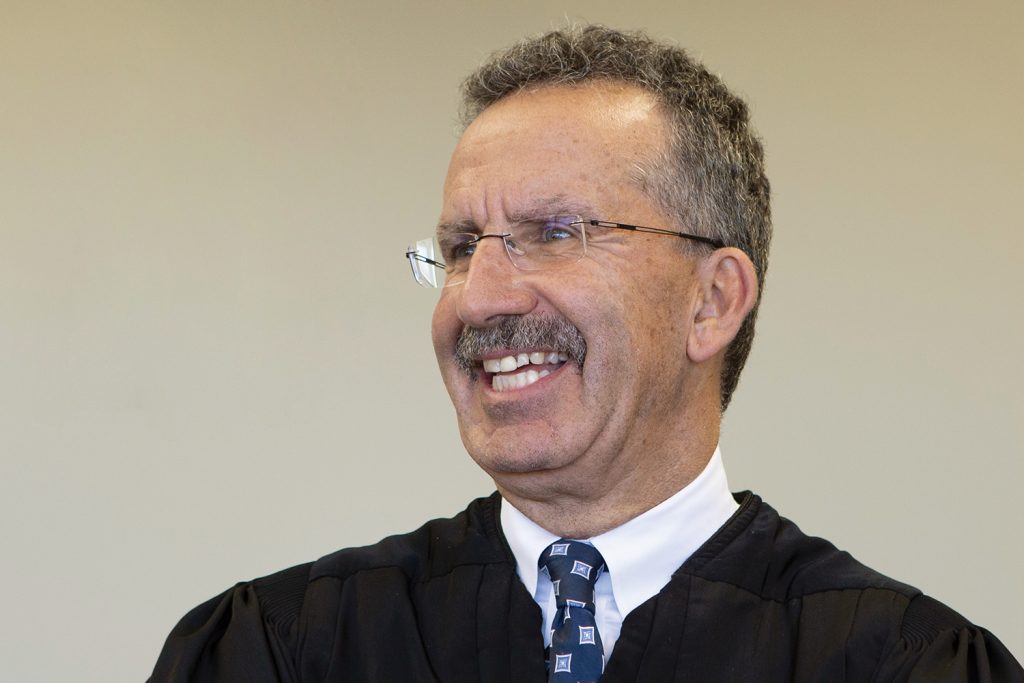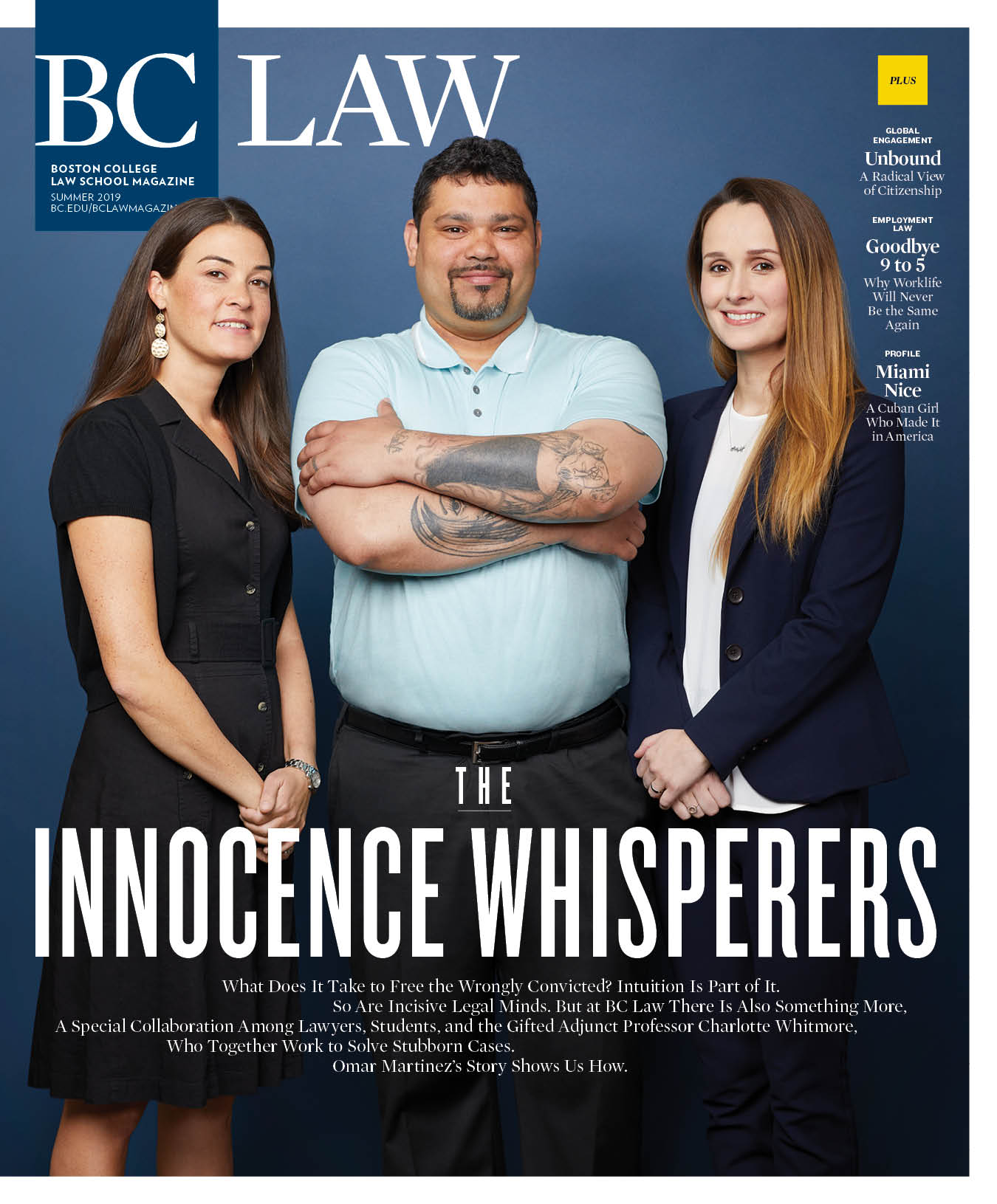Despite the number of people sitting on the hard benches in this sunlit courtroom, there is a respectful silence. An ordinary person is sitting in the witness box. She has taken an oath to tell the truth. Her descriptive answers to her attorney’s questions begin to weave together a story. It is a deeply personal story that provides unique insight into her and the children of her fractured family. She tells this story to another ordinary person, me, who also happens to be the judge. We are separated by a bench, a black robe, and the roles we play. But we are joined together as co-participants in the daily unfolding of the rule of law.
Her role is to tell honestly the difficult story that has led to this moment. Tomorrow, her husband will sit in the same chair and do the same. My role is to listen to them as unique individuals, determine which facts are true, and, utilizing the applicable law, make a decision that will allow them and their children to transition from one family to two, single-parent families. Whew. What a daunting task this is for both of us, the storyteller and the listener.
For over twenty-two years in the Plymouth and Norfolk County probate and family courts of Massachusetts, I was allowed the privilege of listening to many good and decent people tell me their stories. Many of these fellow human beings were reluctantly facing the state-imposed ending of their most significant relationship—their marriage.
Some of the stories were dark and bereft of hope. I remember listening to a twenty-two-year-old mother seeking a restraining order against an abusive boyfriend. I had an eerie feeling that I knew her. Shockingly, I realized that she was the same twelve-year-old child who was neglected and abused by her own parents in a case I had heard ten years before.
Many stories were just plain sad. In divorce, that is pretty much par for the course. However, I choose to remember stories that were inspiring and redemptive. I recall the father and his eleven-year-old daughter who weathered three years of supervised parenting time and now were reunited and enjoying just normal everyday events, like eating ice cream and taking bike rides all by themselves.
“After the court had emptied, I would walk into my quiet courtroom and sit down on one of the church-like pews in the back. From there I would look up at my bench. I would try to imagine what it felt like to be sitting here.”
Occasionally, late in the day after the court had emptied, I would take a break from the burdensome writing tasks in my lobby. I would walk into my quiet courtroom and sit down on one of the church-like pews in the back. From there I would look up at my bench. I would try to imagine what it felt like to be sitting here. This exercise always succeeded in delivering a punch to my nose with the reality of my duty.
It has now been more than a year and a half since I retired from this way of life. Honestly, I was tired and knew that it was the right time for me to move on. It was simultaneously the most rewarding and personally draining work I had ever done.
But now that I am not facing the daily stress and pressure of hearing too many cases in not enough time, the reality of what I have spent the last two decades of my life doing has become clear. I know deep within that I found my calling and purpose for choosing the path of the law when I became a family court judge. It made me a better father, husband, teacher, and human being.
I could never have imagined the amazing journey on which I was embarking that sunny day in May 1986 when I graduated from Boston College Law School as a newly married lawyer without a definite job. I am profoundly grateful for the legal education I received at BCLS, and the opportunity to be a member of such a welcoming community of fellow students and professors.
Over the years, the connection has continued. Professor Dan Coquillette’s text on lawyers and moral responsibility has been the foundation of the course I teach on law and morality at the BC’s Woods College. Professors Paul Tremblay and Mark Brodin have both guest-lectured at my past judicial conferences to fifty family court judges on casuistry/decision-making and evidence, respectively. Professor Bob Bloom has always been a lifeline for me when I needed him, and I can still remember Professor Tom Kohler showing up at Emmett Lyne’s house the night before the funeral of the dearest member of the class of 1986, James Farrell, in 2004.
Several times a year since about ten years after graduation, a band of regulars from our class—brothers Warren Tolman, Skip Jenkins, Fred Gilgun, Irwin Schwartz, Tom Melville, Emmett Lyne, and I—have continued to meet at the Stockyard in Brighton for dinner, friendship, support, and laughs.
My mom taught me long ago the importance of saying thank you. To the BC Law community, my friends, and the lawyers and parties who told their important stories in my courtroom, I am eternally grateful. Thanks and blessings to you all.
James V Menno ’86 is a retired associate justice of the Massachusetts Probate and Family Court. He teaches at the Woods College of Advancing Studies at Boston College. He is presently writing a book.
Photograph by Susan Ogan ©2015 for Massachusetts Judges Conference



